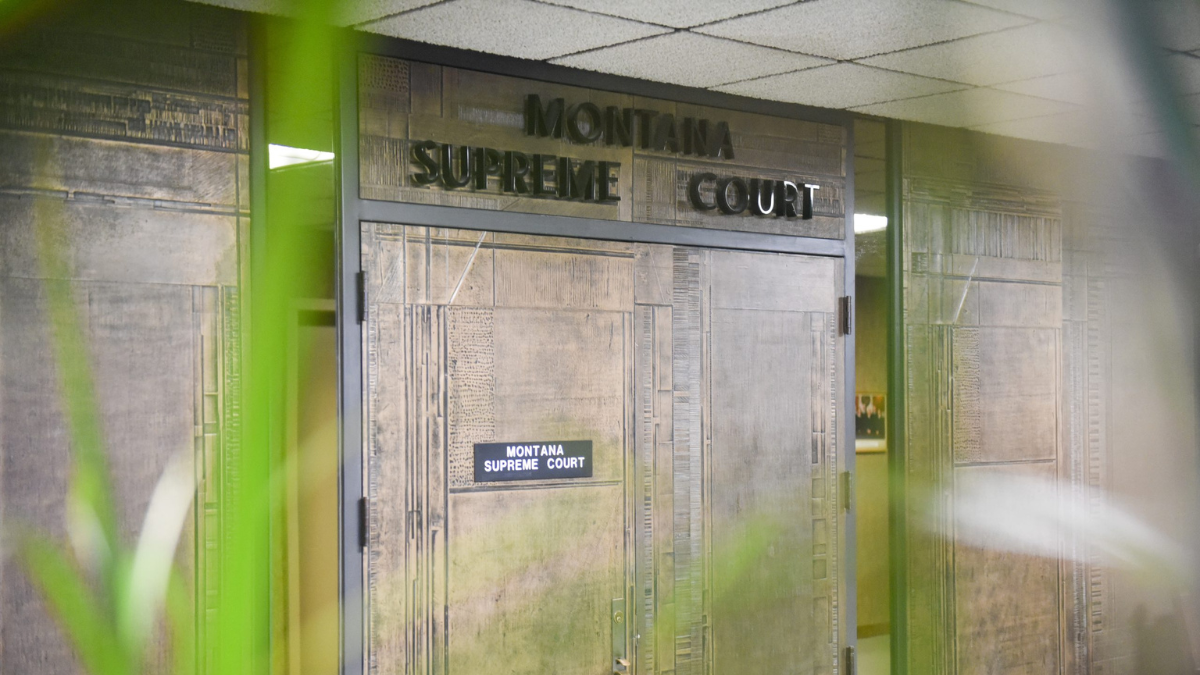Article Summary –
Environmental groups are appealing to the Montana Supreme Court to uphold a lower court’s ruling that blocked a 175-megawatt gas plant being built by NorthWestern Energy near the Yellowstone River. The groups argue that the state did not adequately review the plant’s potential greenhouse gas emissions and lighting impacts. NorthWestern Energy argues that the plant is necessary for reliability as more solar and wind resources are integrated into the grid, and that no state or federal regulations governing greenhouse gas emissions had been in force when they applied for their air quality permit in 2021.
Environmental Groups Challenge Gas Plant in Montana Supreme Court
During a hearing on Wednesday, environmental groups asked the Montana Supreme Court to uphold a lower court’s decision to block the construction of a gas plant near Laurel. The groups are contesting the environmental review conducted by the Montana Department of Environmental Quality (DEQ) for a permit for the 175-megawatt gas plant by NorthWestern Energy.
Previously, a district court judge had ruled in favor of the environmental litigants, stating that the state’s analysis of greenhouse gas emissions and lighting impacts was insufficient. Both NorthWestern Energy and DEQ appealed this decision to the Montana Supreme Court.
NorthWestern Energy insists that the plant is necessary to meet customer needs as more renewable energy sources such as solar and wind join the grid. NorthWestern Energy’s attorney, Shannon Heim, also noted that no regulations governing the greenhouse gases the plant would emit have been in effect since NorthWestern submitted its air quality permit to the DEQ in 2021.
DEQ maintains its analysis was thorough and incorporated everything it was legally required to consider. The agency also suggested that Montana law prevents the court from rejecting a permit solely based on an inadequate environmental review.
However, an attorney for the Montana Environmental Information Center and Sierra Club argued that the state had erred by not considering greenhouse gas emissions and other environmental impacts posed by the $250+ million plant. The plant would emit nearly 770,000 tons of greenhouse gases annually, making it one of NorthWestern Energy’s largest projects in Montana.
During the hearing, DEQ focused its argument on its review of plant noise and on the conditions set by Montana lawmakers for remedies available to project opponents. DEQ attorney Jeremiah Langston accused the Montana Environmental Information Center of trying to “move the goalposts” in terms of noise analysis and using court findings to “arrive at alternative conclusions.”
Heim expanded on Langston’s argument, stating that emissions of greenhouse gases like carbon dioxide are not regulated by the Montana Clean Air Act and thus should not be a consideration for permit rejection. “MEIC is using MEPA to expand the scope of the Clean Air Act. We believe that is contrary to the plain text of MEPA and this court’s precedent. We ask the court to reject it,” Heim told the justices.
Earthjustice attorney Jenny Harbine, arguing for MEIC and Sierra Club, countered that the Montana Clean Air Act allows DEQ to limit emissions from any source needed to prevent or control air pollution. She stated that the agency “absolutely has authority to regulate greenhouse gas emissions,” adding, “The state recognizes the burning of fossil fuels spurs climate change and its harmful effects in Montana.”
The conclusions of the ongoing Held v. Montana youth climate lawsuit could influence the outcome of the lawsuit over the gas plant. Last August, Lewis and Clark District Court Judge Kathy Seeley ruled in favor of Rikki Held and her 15 young co-plaintiffs, stating that the climate is part of the environment and therefore protected under the Montana Constitution.
Harbine added that NorthWestern has indicated it could begin plant operation “as soon as the third quarter of this year.” Harbine agreed with Heim that the gas plant is not subject to the rules the U.S. Environmental Protection Agency adopted last month to limit carbon dioxide pollution from power plants.
The justices gave no indication Wednesday when they might rule on the lawsuit.
—
Read More Montana News


